
Kyoto in One Day: Here's How to See All The Best Attractions of Kyoto
- Written by: WESTPLAN
“Finally in Kyoto!” you think as you step out of JR Kyoto Station. Now then, what is the most time-efficient and effective way to see Kyoto in one day?
Though Kyoto may seem like a place that requires at least several days to explore fully, many travelers have a limited number of days in each destination, and they often have to move on to their next target in a concise amount of time. As such, it’s natural to want to see as much as you can, as efficiently as possible!
And so, this writer, a great lover of Kyoto, shall help these travelers fulfill this wish!
(This article contains affiliate links)
- Table of Contents
-
- Is One Day in Kyoto Really Enough?
- Three Golden Rules for Efficiency
- 1. One-Day Itinerary Options: Train-Only Plan (Fushimi Inari → Kiyomizu-dera → Kinkakuji → Arashiyama)
- 2. One-Day Itinerary Options: Train & Bus Plan (Kyoto Gyoen → Nijō-jō → Nanzen-ji → Ginkakuji → Gion)
- Make the Most of Your One Day in Kyoto: Plan Ahead & Travel Light
Is One Day in Kyoto Really Enough?

The city of Kyoto is surrounded by mountains on all four sides. Temples and shrines line the mountains, and make for beautiful mountain scenery, one of the main draws of Kyoto.
Many places are relatively far from the nearest train station, and many visitors don’t know how to make bus and train transfers in Kyoto.
Thus, it can be quite difficult for first-timers in Kyoto to have an efficiently planned trip.
Three Golden Rules for Efficiency
1. Use Trains, Buses & Walking to Get Around

Kyoto City is well connected by train, with several lines and multiple train types running every 10–20 minutes. While trains and buses cover most major routes, walking is also recommended—especially through the quiet backstreets that buses can’t reach, where you can enjoy a more rustic side of Kyoto.
If you’d prefer less walking, consider the Subway & Bus 1-Day Pass. This convenient pass offers unlimited rides on both subways and buses for a full day, making it easy to reach Kyoto’s main attractions and plan efficient routes. It can be purchased at Commuter Pass Sales Booths, the Kyoto City Bus Management Center, any subway station, or directly on Kyoto City Buses.
2. Stay Near Kyoto Station for Easy Access

There are plenty of accommodation options throughout Kyoto, but for maximum efficiency it’s best to stay near Kyoto Station, which is the city’s main transport hub. The area around JR Kyoto Station also has more than 4,000 coin lockers, a lifesaver for travelers with heavy luggage before check-in or after check-out.
・Case 1: Arriving at Kyoto Station by highway bus early in the morning
Store your luggage in a coin locker and spend the day sightseeing. In the evening, return to Kyoto Station to collect your belongings and check in at a nearby hotel.
・Case 2: After checking out from a hotel near Kyoto Station
Leave your bags at the hotel or in a coin locker, then continue sightseeing until evening. Later, return to Kyoto Station to pick up your luggage and head to your next destination. With bullet trains, local trains, and highway buses all departing from here, you’ll have plenty of options for moving on.
3. Plan Visits Between 9 AM and 5 PM

Most shrines are open at all hours for paying respects, but services such as goshuin-cho, a notebook for collecting the red stamps unique to each temple and shrine, as well as charms and amulets, are limited to shrine office hours.
Temples, on the other hand, have fixed gate hours. While times vary, 9 AM to 5 PM is a good general guideline. Closing times also change with the seasons—some close as early as 4 PM in winter, while during cherry blossom and autumn foliage seasons, evening light-ups may keep them open as late as 9 PM. Always check ahead to avoid disappointment.
To make the most of your day, consider visiting architectural landmarks or scenic spots in the early morning or at night. The calm morning air and illuminated evening views can make for especially memorable experiences.
With that in mind, here are two sample one-day itineraries you can follow after dropping off your luggage at Kyoto Station.
1. One-Day Itinerary Options: Train-Only Plan (Fushimi Inari → Kiyomizu-dera → Kinkakuji → Arashiyama)
This plan allows you to visit Kyoto's most famous spots using the various train lines at your disposal. For those worried about the difficulty of buying train tickets, it’s recommended to buy an IC card instead.
By using the Kansai One Pass, an IC card designed for foreign travelers, you can conveniently use just this one card for various modes of public transport.
9 AM: Head to Fushimi Inari-taisha Shrine - Take the Nara line from JR Kyoto Station to Inari Station (7-minute ride, 150 yen)
Begin at Fushimi Inari-taisha, famous for its thousands of vermilion torii gates.
The shrine entrance is just a one-minute walk from the station. From the main approach, explore the gates, main hall, thousand torii tunnel, inner shrine, and Kumataka-sha Shrine. (Allow about 60 minutes to see the area.) Read more about Fushimi Inari Taisha here.
After your visit, walk five minutes west from JR Inari Station to reach Fushimi Inari Station on the Keihan Line, located just off the main path.
-

-
Address
68, Fukakusayabunouchicho, Fushimi-ku, Kyoto-shi, Kyoto, 612-0882
View Map -
Nearest Station
Inari Station (JR Nara Line)
- Phone Number 075-641-7331
-
Address
68, Fukakusayabunouchicho, Fushimi-ku, Kyoto-shi, Kyoto, 612-0882
10:20 AM: Head to Kiyomizu-dera Temple - Take the Keihan line from Fushimi Inari station to Kiyomizu-Gojō station (6-minute ride, 210 yen)

From Keihan Line’s Kiyomizu-Gojō Station, it’s about a 30-minute walk to Otowayama Kiyomizu-dera, the highlight of the famous Kiyomizu area. The approach is lined with shops, making the walk an enjoyable stroll, and the slope is gentle and easy to climb.
Once at the temple, enter through the Niōmon Gate, guarded by two statues, and explore highlights such as the Tainai-Meguri, the Stage of Kiyomizu, Jishu-jinja Shrine, Oku-no-in, and the Otowa Falls. (Allow about 90 minutes to see the temple and its surroundings.) Read more about Kiyomizu-dera Temple here.
-

-
Address
1-294 Kiyomizu, Higashiyama-ku, Kyoto City, Kyoto Prefecture, 605-0862
View Map -
Nearest Station
Gionshijo Station (Keihan Line)
25 minutes on foot
- Phone Number 075-551-1234
-
Address
1-294 Kiyomizu, Higashiyama-ku, Kyoto City, Kyoto Prefecture, 605-0862
12:30 PM: Lunch (around Kiyomizu-dera)

From Kiyomizu-dera Niōmon, head north towards Gion-Shijō Station, which connects to Nene-no-michi and Yasaka-jinja shrine. (30 minutes by foot)
You can have lunch along the way too.
One item that Kyoto is famous for is its pickles, known as Kyo-tsukemono. The varieties on sale change with the seasons, and there is a surprisingly wide variety available. There are famous shops offering a Kyo-tsukemono buffet with ochazuke, a dish of rice with tea, so why not give it a go? It’s suitable for vegetarians too.
2 PM: See Kinkakuji Temple: From the Keihan line’s Gion-Shijō Station, transfer to the Subway and head to Kitaōji station (28-minute ride, 420 yen)

Next is Kinkakuji Temple (the Golden Pavilion). From Gion-Shijō Station on the Keihan line, take the train to Sanjō Station (2-minute ride, 160 yen), and transfer to the Tozai Line on the Kyoto Municipal Subway, to Sanjō Keihan Station (2 minutes by foot).
Once you’ve reached Karasuma-Koike Station, transfer to the Karasuma Line, and take the train down to Kitaōji Station. (11-minute ride, 260 yen)
From the station, walk eastwards for 40 minutes, and head towards Kinkakuji Temple as you soak in the sights of Kyoto’s streets.
The proper name of Kinkakuji Temple is Rokuonji. The structure is a three-story reliquary hall covered in gold leaf on both the inside and outside. Together with all its surrounding halls, this hall is collectively known as “Kinkakuji,” and it is one of the most famous sightseeing spots in Kyoto.
From Rokuonji’s Kuromon gate, you can spend around 40 minutes walking the temple grounds.
-

-
Address
1, Kinkakujicho, Kita-ku, Kyoto-shi, Kyoto, 603-8361
View Map -
Nearest Station
Kitanohakubaicho Station (Keifuku Dentetsu-kitano Line)
20 minutes on foot
- Phone Number 075-461-0013
-
Address
1, Kinkakujicho, Kita-ku, Kyoto-shi, Kyoto, 603-8361
4 PM: Tour the area around Arashiyama: From Kitano-Hakubaichō station on the Keifuku Electric Railroad, go down to Arashiyama station on the same line (19-minute ride, 220 yen)

For our last destination, Arashiyama, let’s take a relaxing ride on the train towards the entrance. It’s a 20-minute walk from Rokuonji’s Kuromon gate to the nearest station, Kitano-Hakubaichō Station.
Take the train down along the Kitano line to Katabira-no-Tsuji Station, and change onto the Arashiyama line towards Arashiyama Station.
About five minutes away from the station, you’ll reach Togetsu-kyō Bridge, where you can see the amazing view of Arashiyama.


Togetsu-kyō Bridge can also be said to be a symbol of Arashiyama, and the beautiful sights there all year round, from the cherry blossoms in spring, to the lush greenery in summer and autumn foliage in fall, are breathtaking no matter how many times you see it.
Head for a stroll in the nearby bamboo forest and visit the shrines in the area, and peek in the various souvenir shops nearby while looking for your dinner venue.
-

-
Address
Sagatenryuji Suenobaba Town, Ukyo Ward, Kyoto City, Kyoto Prefecture, 616-8385
View Map -
Nearest Station
Arashiyama Station (Keifuku Dentetsu-arashiyama Line)
3 minutes on foot
- Phone Number 075-411-9990
-
Address
Sagatenryuji Suenobaba Town, Ukyo Ward, Kyoto City, Kyoto Prefecture, 616-8385
6 PM: Dinner (around the Arashiyama and Sagano area)

If you’re having dinner in the Arashiyama and Sagano area, you have to try the tofu dishes, also known as yuba.
One of the signature tofu dishes is boiled tofu, also known as yudofu, which is gentle on your tired body and gently warms your heart. In the Arashiyama and Sagano area, there are many restaurants where you can gaze at Japanese-style gardens while enjoying your food.
After relishing your hearty meal, return to Kyoto Station. Togetsu-kyō bridge, with a large number of eateries nearby, is about 10 to 15 minutes away from JR Saga-Arashiyama Station by foot, and you can take a ride down to Kyoto Station from there. (17-minute ride, 240 yen)
2. One-Day Itinerary Options: Train & Bus Plan (Kyoto Gyoen → Nijō-jō → Nanzen-ji → Ginkakuji → Gion)
By using the Subway & Bus 1-Day Pass (1,100 yen), you can visit many sightseeing spots in Kyoto with great savings. The ticket can be bought from the ticket counters in subway stations. There are discounts and other perks in some areas, so be sure to show the ticket when you need to pay for entry to any place.
8:45 AM: Stroll around Kyoto Gyoen - Head to Imadegawa Station from Kyoto Station via the Kyoto Municipal Subway (10-minute ride)

First, we’ll visit Kyoto Gyoen, home of the Emperor of Japan until 1869. From Imadegawa Station, take the exit Kyoto Imperial Palace exit, and it’ll be a six-minute walk to the Seisho-mon gate.
Starting from the palace itself, explore the Kyoto State Guest House and other buildings in the area too (120 minutes to explore). The grounds of the Kyoto Imperial Palace run from north to south, and is the approximate distance between two subway stations.
As we move on to our next destination, we’ll be using the Kyoto Municipal Subway’s Marutamachi Station at the southern end of the palace to head off.
-

-
Address
3, Kyotogyoen, Kamigyo-ku, Kyoto-shi, Kyoto, 602-0881
View Map -
Nearest Station
Imadegawa Station (Karasuma Line)
8 minutes on foot
-
Address
3, Kyotogyoen, Kamigyo-ku, Kyoto-shi, Kyoto, 602-0881
11 AM: Have a stroll around Nijō-jō Castle - From Marutamachi Station on the Karasuma Subway line, head to Nijōjō-mae Station on the Tozai line (3-minute ride)

Moving on, let’s move on to Nijō-jō castle, famous for its cherry blossoms.
From Kyoto Gyoen, head from Marutamachi Station to Karasuma Oike Station on the Karasuma line. From there, transfer onto the Tozai line to reach Nijōjō-mae Station.
From Nijōjō-mae Station to the entrance of Nijō-jō castle, the Higashi Ote-mon Gate, is a three-minute walk. Nijō-jō castle is built on flat ground and is where the Bakufu government, run by the Tokugawa Shogunate of the Edo period, began and fell. Including time to see the inside of the castle and explore the grounds, you can spend around 90 minutes there. Read more about Nijo Castle here.
-

-
Address
541 Nijojocho, Horikawa Nishiiri, Nijo-dori, Nakagyo-ku, Kyoto-shi, Kyoto, 604-8301
View Map -
Nearest Station
Nijojomae Station (Tozai Line)
- Phone Number 075-841-0096
-
Address
541 Nijojocho, Horikawa Nishiiri, Nijo-dori, Nakagyo-ku, Kyoto-shi, Kyoto, 604-8301
1 PM: Have lunch on the way from Nanzenji to Ginkakuji: Take a train from Nijōjō-mae Station to Keage Station via the Kyoto Municipal Subway Tozai Line (9-minute ride)

Return to the Tozai Line’s Nijōjō-mae Station, and head to Keage Station. Our destination this time is Nanzenji, one of the representative temples of Zen Buddhism. Let’s enjoy a late lunch. From here on, there are many udon shops along the way, so be sure to drop by. Most of the shops offer tempura and rice bowls too.

Once you’ve satiated your hunger, you can see the breathtaking Nanzenji Suirokaku aqueduct, with its continuous beautiful arches that start from Nanzenji’s Sanmon gate (90 minutes to explore the area). From there, head to Ginkakuji temple via the Philosopher's Path (Tetsugaku-no-Michi), famous for its cherry blossoms in spring (26 minutes by foot). Read more about Nanzenji Temple here.
-
Suirokaku Aqueduct南禅寺水路閣
- Address Nanzenji Fukuchi-cho, Sakyo-ku, Kyoto-shi, Kyoto-fu, 606-8435

Ginkakuji Temple (the Silver Pavilion) is at the heart of Higashiyama culture, which uses the Japanese concept of “wabi-sabi,” an acceptance of transience and imperfection, as its basis. Enjoy the simple beauty of the place, starting from the Jishōji main gate, for a 60-minute soiree along the main path. Read more about Ginkaku-ji Temple here.
After you’ve finished exploring the place, exit from the Jishōji main gate onto Ginakakuji Sando road, and head west for five minutes to reach the bus stop, Ginkakuji-mae, served by city buses.
-

-
Address
2, Ginkakujicho, Sakyo-ku, Kyoto-shi, Kyoto, 606-8402
View Map -
Nearest Station
Mototanaka Station (Eizan Dentetsu Eizan Line)
28 minutes on foot
- Phone Number 075-771-5725
-
Address
2, Ginkakujicho, Sakyo-ku, Kyoto-shi, Kyoto, 606-8402
5 PM: Enjoy Gion at night - Take the city bus from Ginkakuji-mae to Gion (21-minute ride, subject to traffic conditions)

The sun is beginning to set. Let’s head off to see Gion at night via bus.

From Ginkakuji-mae, you can take City Bus 100 (towards Kyoto Station) and alight at Gion. If you’re fortunate, you may sometimes see maiko and geisha walking the stone pavements of Gion.
However, chasing after them with your smartphones and cameras is strictly not allowed. Enjoy the atmosphere of this historic street.
7 PM: Enjoy a Kaiseki dinner in Gion

It’s time for dinner; let’s look for a place to eat at while heading towards Shijō Station from Kawaramachi. In this area, you can freely pick between casual izakayas to high-end restaurants, but why not give Kaiseki-ryōri, a traditional Japanese multi-course dinner, a go?
After you’ve enjoyed a hearty meal, let’s head back to Kyoto Station. It’s a four-minute ride via the Kyoto Municipal Subway Karasuma Line from Karasuma Station to Kyoto Station.
Make the Most of Your One Day in Kyoto: Plan Ahead & Travel Light
For an enjoyable and efficient trip, pre-trip planning is a must. Mark out the places you want to go on a map of Kyoto, and check the visiting hours for each one. From there, connect the points in the shortest way possible for your own bespoke sightseeing map of Kyoto.
The starting point of your journey can be either the station where you leave your baggage, or the hotel you’re staying at.
It’s recommended that you leave your luggage at your starting point, and wear comfortable walking shoes or sneakers so that you can easily get around by walking and public transport.
If you bring along a light jacket and simple rain gear, you can have a blast enjoying Kyoto. Please make each and every day of your holiday count, including your one day in Kyoto!
Kiko Matsuda, Keiko Kimura, Risa Tsushi, and a team of female writers familiar with Kansai. We love eating, drinking and traveling! We share fun information based on our experiences.
- Area
- Category
*Prices and options mentioned are subject to change.
*Unless stated otherwise, all prices include tax.
Popular Tours & Activitiess
Recommended places for you
-

Jukuseiniku-to Namamottsuarera Nikubaru Italian Nikutaria Sannomiya
Izakaya
Kobe, Sannomiya, Kitano
-

Kambei Sannomiyahonten
Yakiniku
Kobe, Sannomiya, Kitano
-

Kanzenkoshitsuyakinikutabehodai Gyugyu Paradise Sannomiya
Yakiniku
Kobe, Sannomiya, Kitano
-
Events

Sunflower terminal (Osaka) Terminal 1
Other Sightseeing
USJ, Nanko Port
-
Goods

Yoshida Gennojo-Roho Kyoto Buddhist Altars
Gift Shops
Nijo Castle, Kyoto Imperial Palace
-

ISHIDAYA Hanare
Yakiniku
Kobe, Sannomiya, Kitano
-

New Way to Reach Koyasan! Ride Nankai's 'GRAN Tenku' for a Heavenly Journey
by: Guest Contributor
-
Ad
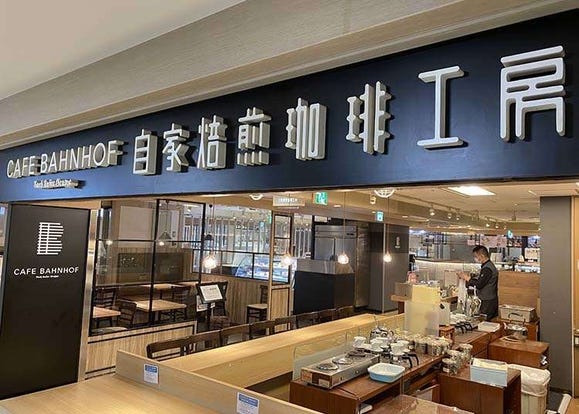
Café Bahnhof in Osaka: The home-roasted coffee that captivated G20 leaders!
-

Kyoto's Hidden Treasures Open This Winter! Enjoy Exclusive Access to 15 Rare Cultural Sites (Jan-Mar 2026)
by: Guest Contributor
-

Celebrate a Dreamy Barbapapa Christmas at JR Osaka Station's Twilight
by: Guest Contributor
-
Ad

Discover Timeless Beauty: Kimono-en, a Web Magazine Exploring the Spirit of Kimono
-
Ad

Experiencing Manga as Culture, Not Just Reading It: Expo 2025 with Rumiko Takahashi
Inspiration for Accommodations
-

Spacious Family Hotel in Namba: 20 Comfortable Stays for Family Fun
-
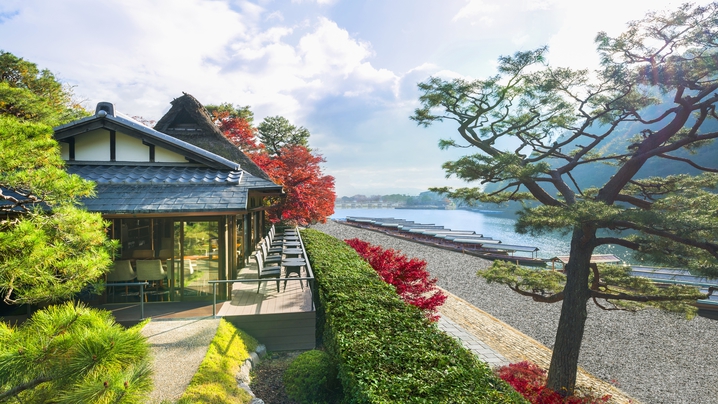
Charming Hotels to Enjoy the Spectacular Views of Arashiyama's Autumn Leaves from Your Room
-

Experience Stunning Views of Osaka Castle from Private Spaces: Top Hotels Near Osaka Castle
-
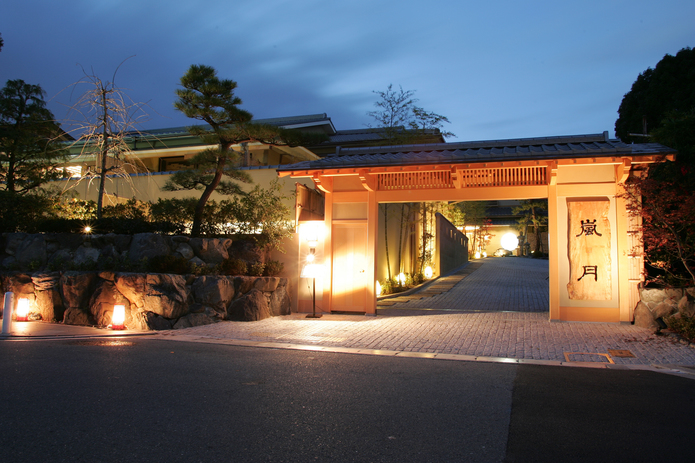
Recommended by Visitors! Arashiyama's Best-Rated Hotels
-

Family-Friendly Universal Studios Japan Hotel with Excellent Access
-
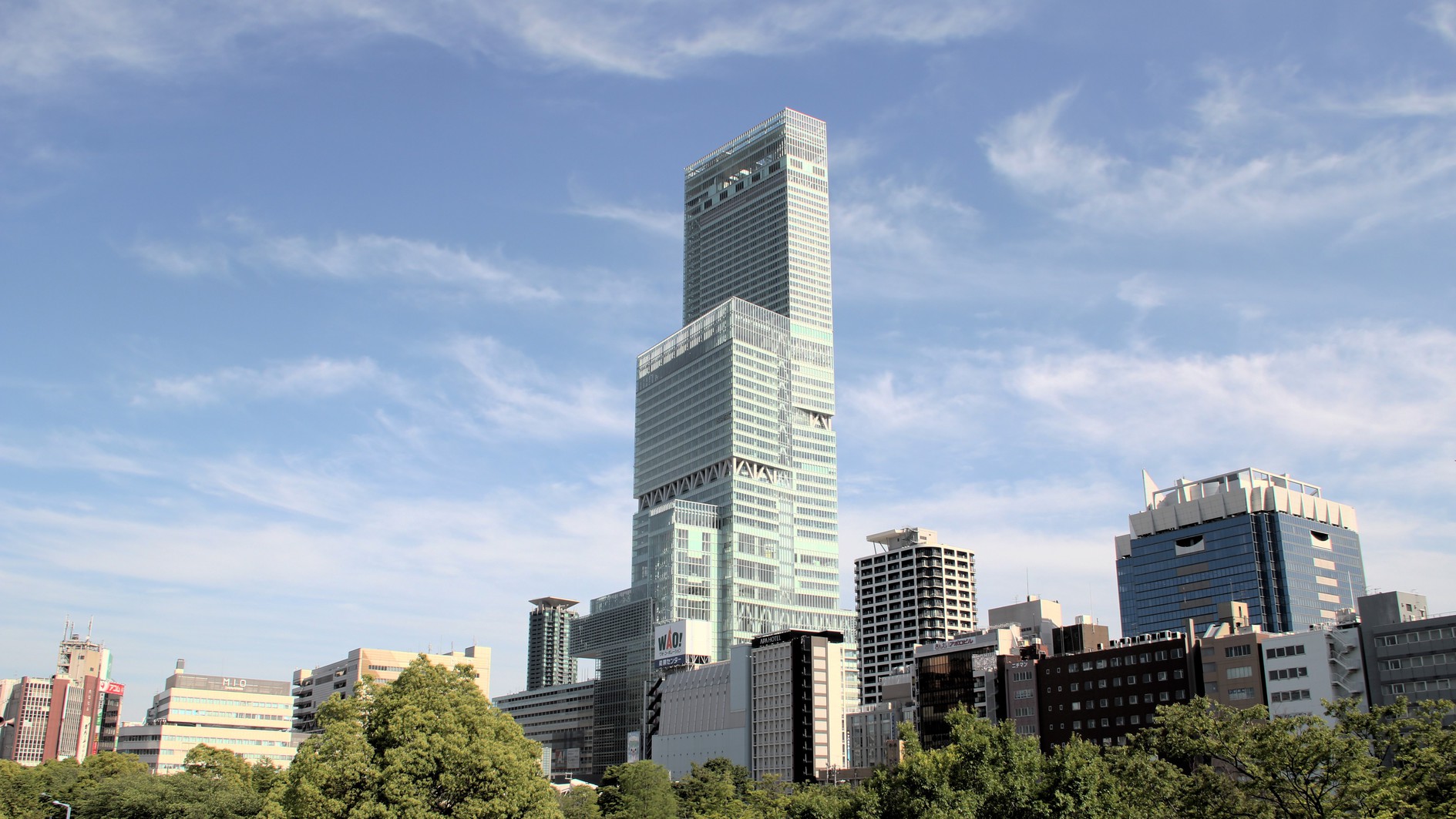
Enjoy a Comfortable Stay in Osaka! 10 Hotels with Convenient Airport Shuttle Services
-

Top 10 Recommended Hotels Near Namba Station with Great Access
-
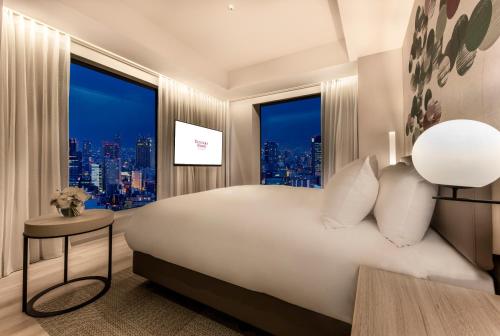
Enjoy Night Views from Your Room! Recommended Hotels in Namba Area
-

Top 5 Best Sightseeing Spots Near Shin-Kobe Station
-

Autumn in Japan 2025: Fall Foliage Forecast & Where to Enjoy the Colorful Leaves (+Tour Info)
-

Complete Guide to the JR Hokuriku Arch Pass: Your Key to Kanazawa, Fukui, and Japan's Coastal Wonders
by: James Davies
-

Dining in Kyoto: Best Restaurants for Kaiseki, Sushi, Cafes & More
-
Ad

Comfy Toilet Map for Osaka Station: Can You Get Around with a Stroller? Are There Clean Powder Rooms?
-

8 Unfamiliar (But Totally Normal) Customs in Japan!
- #best gourmet Osaka
- #things to do Osaka
- #what to do in kyoto
- #what to bring to japan
- #best gourmet Kyoto
- #new years in Osaka
- #what to buy in nanba
- #Visiting Osaka
- #onsen tattoo friendly arima
- #daiso
- #Visiting Kyoto
- #best japanese soft drinks
- #japanese fashion culture
- #japanese convenience store snacks
- #japanese nail trends




























